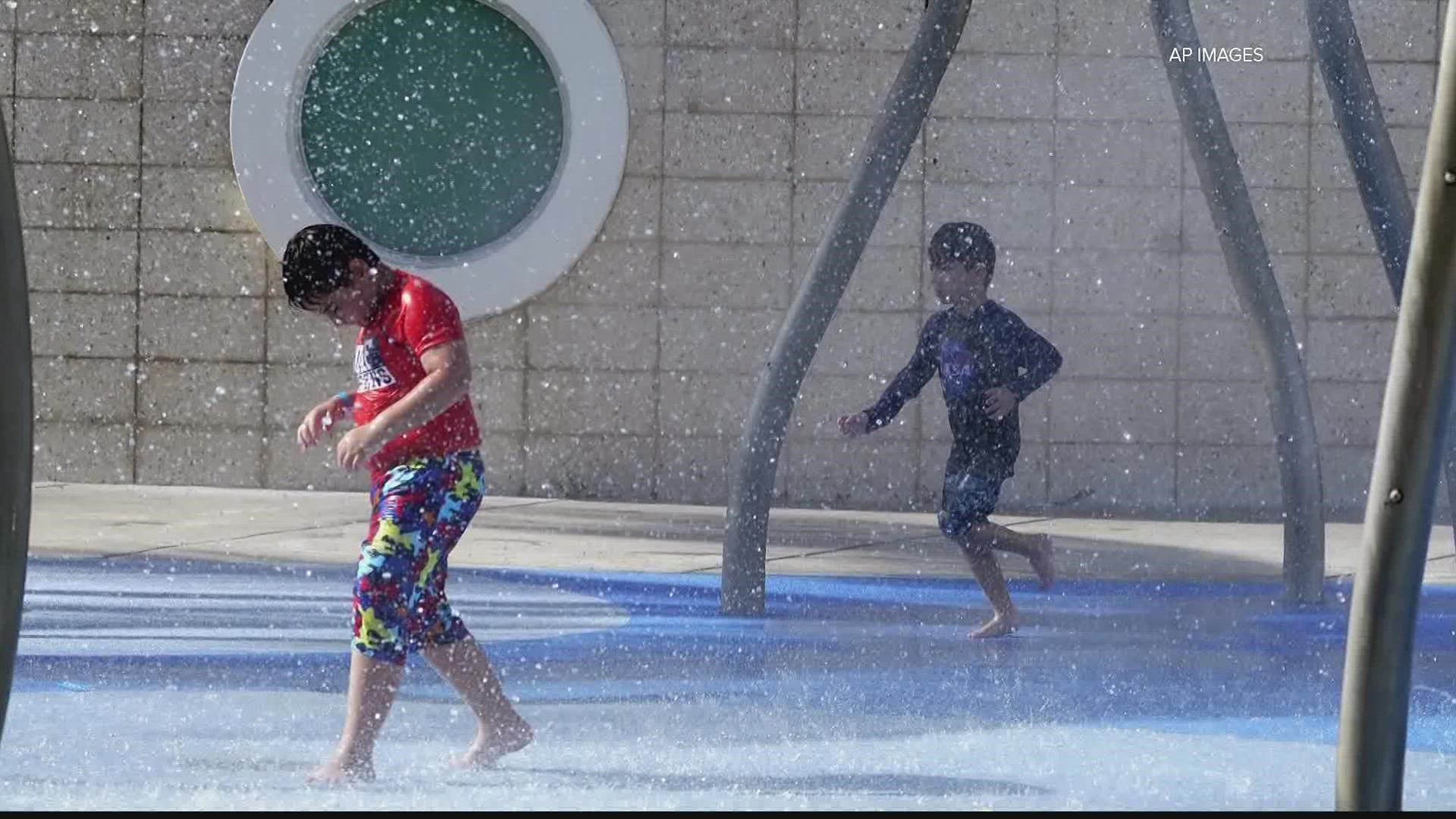ATLANTA — It’s the first day of summer and as temperatures climb toward triple digits, pediatricians are warning parents to keep a close eye on their kids.
The most popular areas of Brownwood Park in SW Atlanta are in the shade, but there are those moments when Sarah Brune’s 18-month-old is drawn to the sunshine. Mom keeps plenty of water on hand and doesn’t stay outdoors more than a half-hour at a time. Still, both of her children have felt the impacts of Georgia’s late spring heat wave.
“He has a sister too, and yesterday she had a heat rash,” said Brune. “I’ve noticed he’s sleeping more. I don’t know if it’s because it’s more tiring when we go out because it is so hot.”
Pediatricians say young children aren’t able to regulate their body temperature like adults.
“It is much easier for a child to get heat exhaustion than for an adult,” said pediatrician Dr. Joanna Dolgoff. “Babies are at an incredibly high risk.”
High humidity can make the outdoors feel even warmer than the temperature indicates. It’s called the heat index. According to the American Academy of Pediatricians, a heat index over 90 can be troublesome for children who may not know why they’re starting to feel bad. Anything over 110 is hazardous.
Dolgoff said to watch for signs like sluggishness, cool clammy skin, and muscle cramps. They’re all possible signs of heat exhaustion.
“Any of these symptoms, just get them out of the heat into a cooler setting,” she added. “Once you get to the point of dizziness and fainting, that's when you're going to seek medical attention right away. Heat exhaustion can progress to heat stroke which is a life threatening emergency.”
Dolgoff also said it takes time for our bodies to get acclimated to the heat which is why this early heat waves can be difficult for parents and their children.

